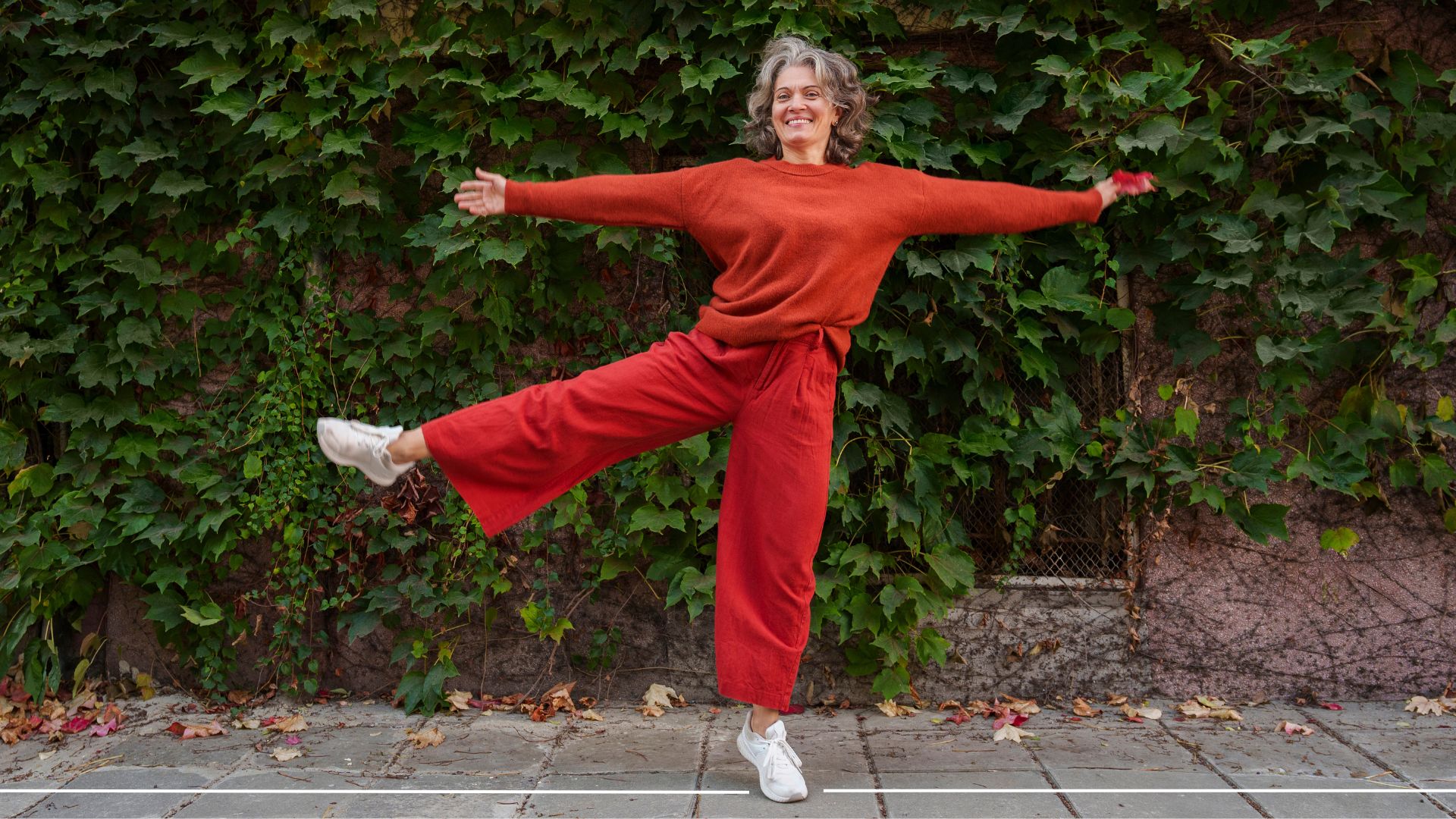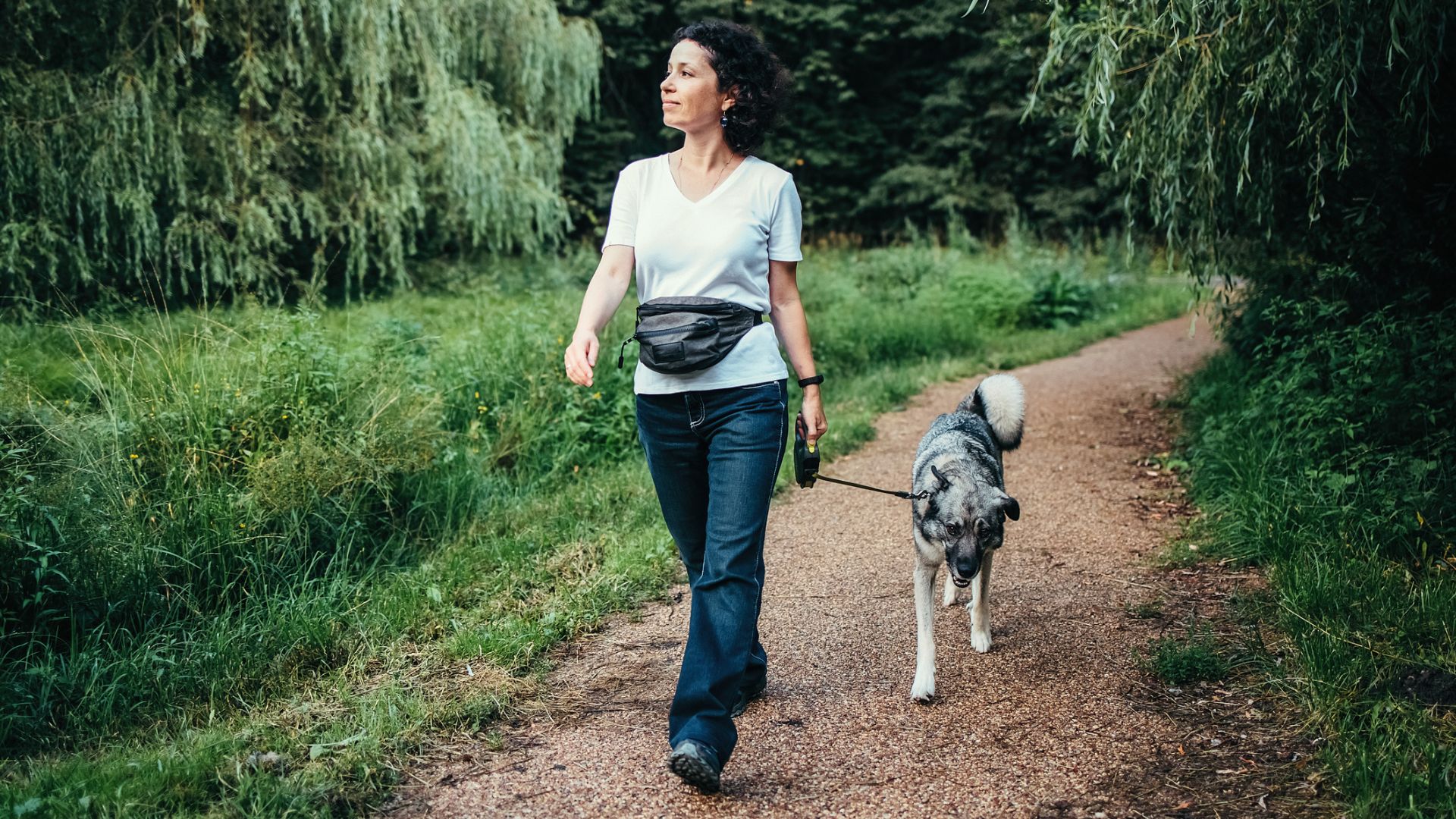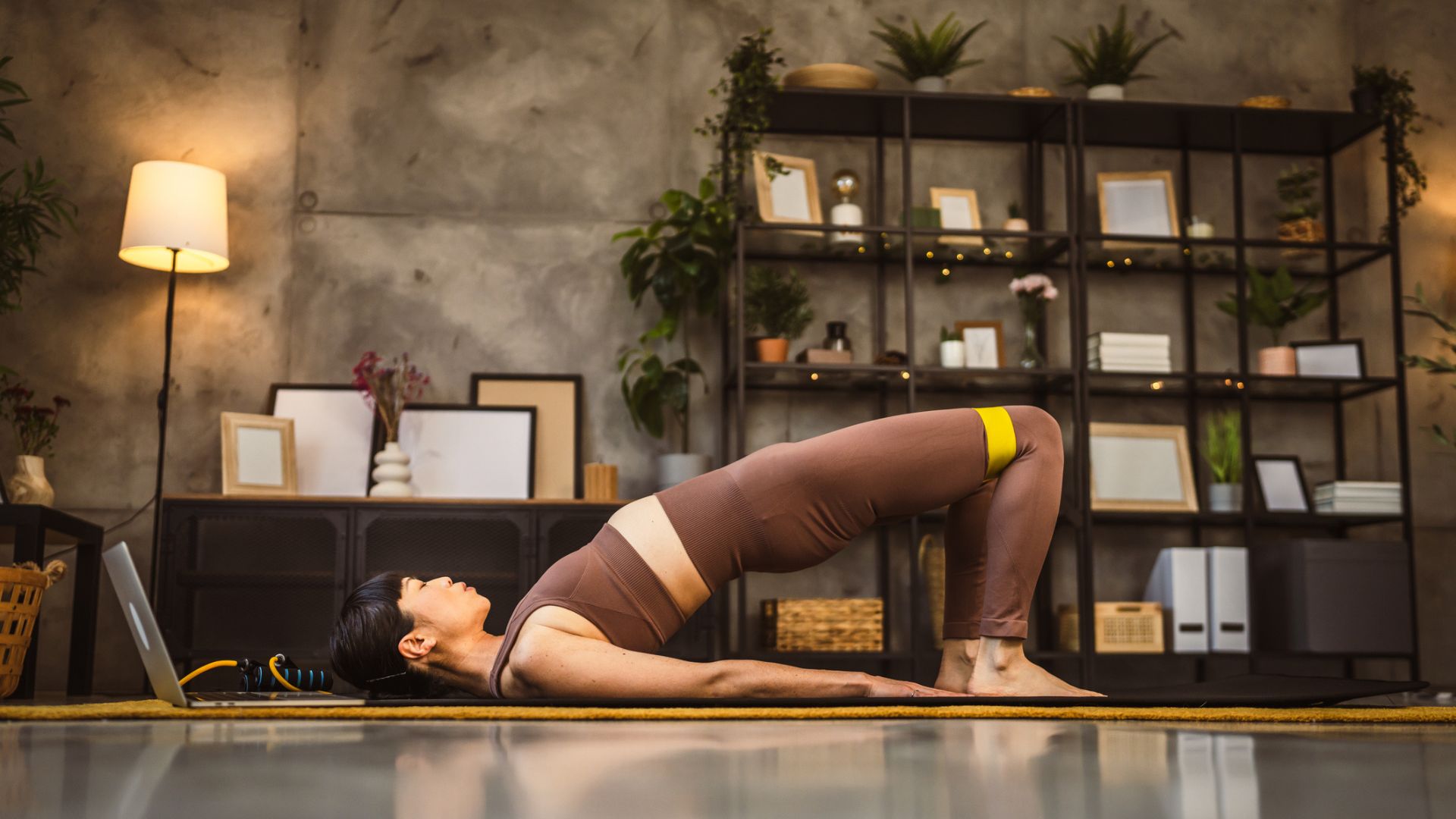
It's worth exploring how to lower your biological age if you want to live better, not just for longer. Rather than focus on one type of workout or diet, lowering your biological age is all about small everyday habits that make a big difference.
A biological age test measures how old your body's cells are and how well your body functions, separate from your 'real' chronological age. It's not an exact science, but it can give you an idea of how well you're ageing. The lower your age, the more likely you are to live with longevity, which is "living a healthier life with a better quality of life and better health outcomes" as well as living for longer, says Dr Jeff Foster, a GP, physiology and longevity specialist.
There are four key pillars to longevity: Exercise, nutrition, work-life balance, and medical intervention when required, he says. So, with the help of other longevity and ageing experts, including integrative medicine specialists, personal trainers, and nutrition experts, we've collated a list of easy everyday activities to help tick these pillars off the list, reduce your biological age and metabolic age, and improve longevity.
How to reduce biological age
1. Start walking
If there's one activity all the experts agree on, it's walking. "Humans are designed to move. We are built to use our bodies in varied and continuous manners throughout the day and only by moving do we stimulate the production of joint fluid, the substance that reduces friction in our joints," says Dr Charlie Bertoia, a chiropractor and Brazilian jiu-jitsu coach.
"Movement also keeps our muscles supple which prevents stiffness and tightness. By varying how we move we avoid overuse/repetitive strain-type injuries which are common causes of immobility," he says.
Walking has even been described as a "longevity jab" by researchers in a British Medical Journal study. How far should you walk every day to get this benefit? They found that about 12km (8 miles) of walking throughout the day could reduce biological age by as much as 10 years for some people.
However, any walking at all is better than sitting still. "A recent study revealed that as little as 10 minutes a day of both steady or average and brisk walking is linked to longer telomeres, the protective caps on chromosomes that keep cells healthier for longer. Those telomeres can lead to a longer life expectancy, potentially shaving up to 16 years off your biological age by midlife for brisk walkers as compared to slower walkers," says Dr Suzanne Bartlett Hackenmiller, an integrative medicine specialist and expert in outdoor therapy who works with AllTrails.
While indoor walking workouts have their benefits, slip on your walking shoes and head outdoors to get more. "You'll gain the added benefits of lower cortisol levels as well as better regulation of your circadian rhythm due to natural light exposure, both of which help support longevity and overall wellbeing," she says.

2. Take the stairs
"Taking the stairs increases circulation ensuring that vital nutrients and oxygen are efficiently delivered to cells throughout the body, including muscles, joints, and connective tissues," says Laura Wilson, a physiotherapist and founder of The Swiss Touch. "This enhanced nutrient delivery is essential for cellular repair and regeneration - processes fundamental to maintaining healthy tissues and slowing down biological ageing.
Research from the European Society of Cardiology has found that (compared with not doing so), climbing the stairs was linked with a 24% reduced risk of dying prematurely from any cause and a 39% lower likelihood of dying from cardiovascular disease, as well as a reduced risk of a heart attack, heart failure, and stroke.
It's also a weight-bearing movement, notes Chloe Thomas, certified personal trainer, and a women's health and mindset coach. "It strengthens muscles improves cardiovascular fitness, and boosts bone density. Not only that, but it also burns calories, supports balance, and helps with your endurance."
Going up and down the stairs every day at home, in the office, and out and about is an easy way to do more exercise and get 10,000 steps in at home too.
"Beyond the musculoskeletal benefits, regular physical activity has a positive impact on our metabolic health. It improves insulin sensitivity and helps regulate blood sugar levels, reducing the risk of chronic diseases like type 2 diabetes. It's also shown to have anti-inflammatory effects. Chronic low-grade inflammation is implicated in many age-related diseases, so by reducing inflammation, we can contribute to slowing down the ageing process and reducing the risk of various health issues," adds Wilson.
3. Drink more water
Keeping your blood sugar at healthy levels is linked to better life expectancy and can reduce the health risks associated with having high blood sugar levels, says Dr Sam Wild, the women's health clinical lead at Bupa Health Clinics. "Research has found that those diagnosed with type two diabetes aged 30 could live 14 years less when compared to someone without the condition," she says.
Drinking enough water is one way to keep blood sugar levels stable. "It's best to drink things that won't cause your glucose levels to spike further - like water, plain milk, and sugarless tea or coffee," Dr Wild adds.
In general, it's best to aim for two to three litres a day - or about seven glasses, per NHS advice.
4. Load up your muscles
Another reason why walking and taking the stairs are so beneficial is that they are both weight-bearing exercises, which are needed for longevity after 40, says Dr Foster.
Strength training, also known as resistance training, is another key part of this - but don't worry, you don't have to go to the gym to do it. You don't even have to do strength training at home if you don't want to. "Small bouts of activity, like heel raises while waiting for the kettle to boil also engage our muscles and help maintain muscle mass and strength," says Wilson. These are otherwise known as exercise snacks and are simple ways to strengthen your muscles and stretch out without doing one bout of exercise.
"As we age, we naturally lose muscle mass (sarcopenia), which is a significant contributor to frailty and immobility. Regular muscle activity helps counteract this process, preserving our functional capacity and further reducing the risk of falls and injuries," she says. In fact, regular strength training has been shown to lower biological age by as much as eight years.
Here are three key exercises that PT Thomas recommends you slot into your day:
- Glute Bridges: "These are perfect for activating and strengthening the glutes, protecting the lower back, and improving hip mobility, which is vital for daily movements and longevity. They do not put any pressure on the knees unlike squats and are good for anyone with back issues," she says. You could do these during advert breaks while watching television.
- Press ups, kneeling press ups or countertop press ups: "These build the upper body and core strength without the need for any equipment. They’re gentle on the wrists and shoulders but effective for toning arms and improving your posture," she says.
- Heel drops: "These are great for working your core and suitable for anyone with back pain as well. Our core is imperative for balance and preventing falls."

5. Maintain connection
"Don't live to work, enjoy your life. There is also good evidence that social isolation as you get older increases mortality risk," says Dr Foster, referring to research published in the Aging Health Journal. Having good support from friends has been linked to a slower pace of ageing up to 10 years, in research linked to the Medical College of Wisconsin.
However, the study showed that consistent support was key. So, there's no point in hanging onto familial relationships and friendships that are inconsistent and don't have a positive effect on your life to reap the benefits. Learning how to make friends as an adult again can be just as rewarding as meeting up with people you've known for years.
"Engaging in some activity where you'll meet others with this interest is a good way to make new friends," Dr Gail Saltz, clinical associate professor of psychiatry at the NY Presbyterian Hospital, Weill-Cornell School of Medicine, previously told woman&home. "It can be something cultural, social, hobby-like, sports-affiliated, musical, and so on. The point is to find something that interests you where others have a similar interest."
6. Have a coffee
Yes, really - your morning cup of coffee could add years to your life. New research published in the European Heart Journal has even gone so far as to say when you should drink coffee to reap the benefits for heart health.
"The health benefits are all down to coffee’s healthy plant chemicals known as polyphenols – it’s one of the richest sources of polyphenols in our diet. Human studies have shown coffee polyphenols to both promote a more diverse microbiome and to have potent antioxidant and anti-inflammatory effects, supporting our overall physical and mental wellbeing," says Dr Rupy Aujla, a nutritional medicine specialist and the chief science officer at Exhale Coffee.
"It also helps to preserve your life by reducing the risk of cardiovascular disease, type 2 diabetes, metabolic ill health, and neurodegenerative diseases such as dementia, Alzheimer’s and Parkinson’s," he adds.
The perfect amount? "Research proves that habitual coffee drinkers of 2 to 3 cups per day live longer lives with enhanced brain health, cognitive function, improved attention, alertness, and cognitive performance," he says.
But those looking to find the benefits of decaf coffee are in luck too. Other research, including that cited by Dr Tim Spector, says the benefits are in caffeinated and non-caffeinated varieties.

7. Stay balanced
The second most important pillar of longevity is a "diet of nutrition", says Dr Foster. "Make sure you eat a healthy balanced diet and avoid being overweight." Indeed, new research in the Journal of Sports Medicine found that being overweight was linked to an early death - although, having good aerobic fitness (i.e. doing cardio exercise like walking or running) was the biggest predictor of long-term health.
According to the NHS, having a balanced diet doesn't mean cutting out all the foods you love in favour of exclusively nutrition-rich foods. It "means eating a wide variety of foods in the right proportions, and consuming the right amount of food and drink to achieve and maintain a healthy body weight."
What else helps lower your biological age?
The fourth pillar to longevity is to "get a health check to treat or prevent disease before it happens," says Dr Foster. This means speaking to your doctor when you notice something's not quite right, attending regular cancer and disease screenings, and taking up the NHS Health Check when eligible.







